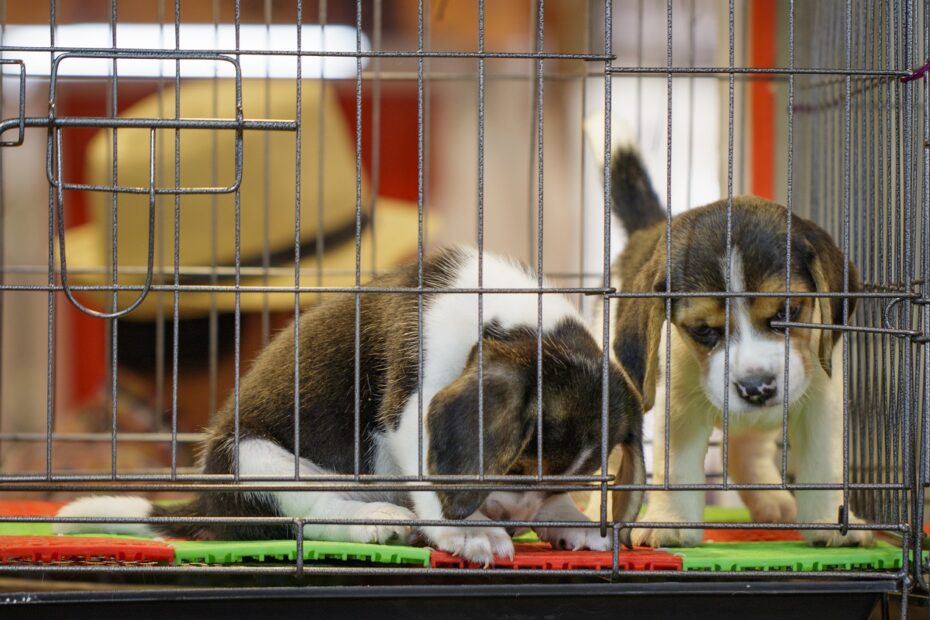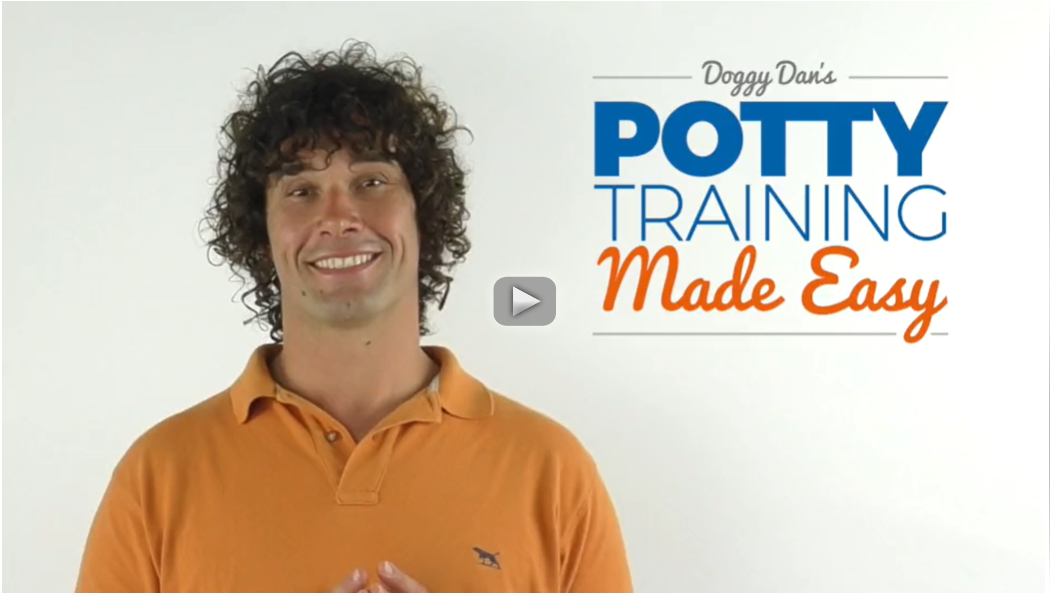When your puppy pees in the crate at night, it’s hard not to feel the world is against you.
After all, didn’t you get a create specifically because everyone told you it would make potty training a breeze?
And haven’t you already read every potty training manual and followed every instruction to the letter?
So, what exactly is going on?
Actually, it could be one of many things, none of which are unique to either you or your pup.
Knowing that other people are going through the exact same thing won’t make the clean-up process any easier but rest assured… there are thousands upon thousands of dog owners dealing with the exact same piddle puddles every day.
Why?
Because potty training takes time. Mistakes happen. Accidents are inevitable. It’s challenging, it’s frustrating, and it’s often very, very smelly.
But trust me, none of this lasts forever.
Get to the root of the problem, implement a few different strategies. And before you know it, your pup will be potty trained to perfection.
Need some convincing?
Then check out the Potty Training Made Easy Course from the Online Dog Trainer, Dan Abdelnoor. (see video below)
During the course, Dan takes you through the A-Z of potty training, highlighting common errors and showing you exactly what to do and when to do it.
Obviously, no one can do the hard work for you, but providing you follow the advice, you’ll be well on the way to success.
Anyway, here’s the link to take a look: Potty Training Made Easy – How To Get Your Dog Fully Potty Trained The Quick & Easy Way…
(video will open in new window)
Why Does My Puppy Pee in the Crate at Night?
Potty training is unquestionably one of the trickiest tasks a new dog owner will face. Crates are often heralded as the best way to make the process go with a bang, but they’re by no means infallible.
If you want to get back on the path to potty training success, you’ll first need to figure out exactly what’s causing the problem.
Some of the most common reasons for a puppy peeing in the crate at night include…..
Bladder Control
Puppies are tiny. Their bladders are even smaller.
Until they get to around 12 weeks old (which, FYI, is usually the best age to start potty training), their ability to hold their bladders is next to none.
So if you want to catch any accidents, you’ll need to take them out every 1 to 2 hours at least.
Once they reach 12 weeks old, they can be expected to exercise some degree of bladder control… but overestimate how much at your cost.
As a guideline, puppies can usually ‘hold it’ for the number of hours that corresponds to their age in months, plus one.
So a three-month-old puppy, for example, will usually be able to go four hours between bathroom breaks. But that’s in no way guaranteed.
All dogs are different, and there’s no magic number of months when you can kiss goodbye to any and all accidents.
Size, personality, even breed can all affect just how long a puppy takes to achieve bladder control.
If they reach their limit while you’re still catching 40 winks in bed, they’ll have no choice but to pee in their crate.
It’s A Habit
When a puppy feels the urge, they’ll usually let you know by scratching at the crate and whining. If you’re already in the land of nod and miss the signs, they’ll eventually have no choice but to soil the crate.
If that happens a couple of times, your pup may start to think it’s fine to use the crate as a bathroom.
Fear/Anxiety
While a lot of dogs take to their crates like ducks to water, some really don’t.
Those that don’t fall into two categories.
There are those that get frustrated, bored, and restless, and there are those that become genuinely scared and fearful the moment the crate door closes.
A puppy that gets frustrated is one thing. With time, patience, and the right techniques, they’ll eventually get used to the crate, and even come to love it.
However, puppies that develop a phobia about it require a different strategy.
If you continue to leave them in the crate, they’ll simply become increasingly fearful and start displaying behaviors that can include everything from scratching desperately to escape to crying constantly, and in worst cases, submissive urination.
History
Puppies that have come from a puppy mill or a pet store are more likely than others to pee in the crate.
The explanation is simple enough: until now, they’ve been confined to a crate almost 24/7. So have become accustomed to dividing up what little space they have and using it as both a bathroom and a living space.
Breed and Size
The smaller the dog, the more likely they are to pee in the crate.
Why?
For a start, they have smaller bladders and can’t hold it for as long as bigger dogs can.
There’s also the unfortunate fact that very small breeds are more likely to come from puppy mills – something that, as we’ve seen, doesn’t spell good things for potty training.
Sometimes, it’s less to do with the dog and more to do with the owner. Because their accidents are generally smaller and harder to notice, it can take longer to spot the signs and take the necessary action before it develops further.
Related Post: Solved! How To Toilet Train A Puppy In 7 Days – Housetrain ANY Dog Now!
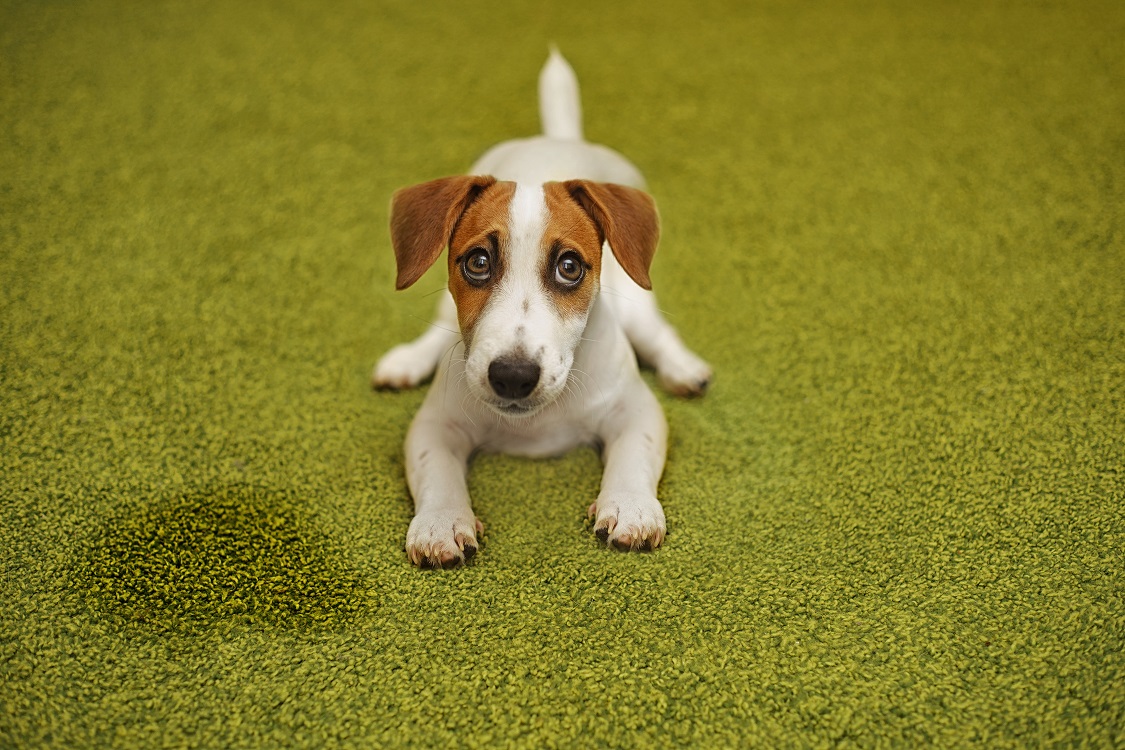
What To Do If Your Puppy Pees In The Crate At Night
Waking up every morning to a sad, pee-soaked puppy is no one’s idea of fun. Fortunately, there are plenty of strategies available that will help you tackle the problem at its root.
The first step? Watch this Potty Traning Made Easy Course.
Not a single one of us is perfect, and not a single one of us doesn’t make mistakes from time to time. This course doesn’t just show you where you might be going wrong. It tells you exactly what to do to get it right.
Whether your pup is peeing solely at night or is depositing pee bombs around the house from dawn to dusk. The insights this course reveals will give you an invaluable plan of action to address it.
Once you’ve watched the course, cement what you’ve learned with the following strategies.
Make Sure They’re Healthy
If your pup is peeing in the crate, the first step is to rule out any medical issues.
If they’ve only recently started having accidents after previously making good progress, it’s double important to get a vet to check them for a canine urinary tract infection or other health problem.
To help your vet reach a diagnosis, be sure to share details of any new medications or supplements your pup is taking, along with any other out-of-the-ordinary behaviors you’ve noticed.
Keep an Eye on the Clock
Although dogs hate soiling their sleeping area, they’ll be left with no other option if you keep them crated for longer than their bladder can cope with.
Although every dog is different, the general rule of thumb for how long a pup can exercise bladder control is their age in months plus one.
So again, if your pup is 3 months old, they’ll usually be able to ‘hold it for 4 hours.
Be sure to take your puppy outside before putting them in the crate, so you know when to start the clock.
Set a Schedule
What goes in must come out. Fortunately, you can figure out roughly what time the exodus is likely to happen by keeping to a schedule.
Keep meals to regular times, so you know when to pay a visit to the yard. And also, do the same with nap times and play sessions, as pups tend to drink their fill immediately after waking up or running around.
If you do, you’ll eventually be able to gauge exactly when a bathroom break is due simply by the time.
Check the Size of the Crate
The size of the crate can have a major impact on whether potty training goes with a bang or a whimper.
If the crate is too big, there’s a very good chance your pup will decide to use one part for sleeping and one part for peeing.
Look for a crate that’s big enough for them to stretch out in and stand up and turn around in, but small enough to avoid the risk of them using one half as a bathroom.
Take More Potty Breaks
Puppies don’t have fully developed bladders. Until they reach a certain age, water runs right through them.
Creating a schedule around mealtimes, playtime, and bedtime helps. But you might also need to set your timer at regular intervals through the night.
Remember, the idea that a puppy can hold their bladder for the number of hours that corresponds to their age in months plus one is a guideline only – it’s not going to apply to all dogs.
If you’re taking your three-month-old puppy out every 4 hours as per the prescribed amount, that’s a good start. But if they’re still having accidents, it’s time to mix things up and take them out twice as often.
It may be that you don’t get your full 8 hours of shut-eye a night, but nothing lasts forever. As they mature and stop having accidents, you can gradually work on increasing the time intervals.
Related Post: Why Is My Puppy Peeing Everywhere? – How To Potty Train ANY Pup
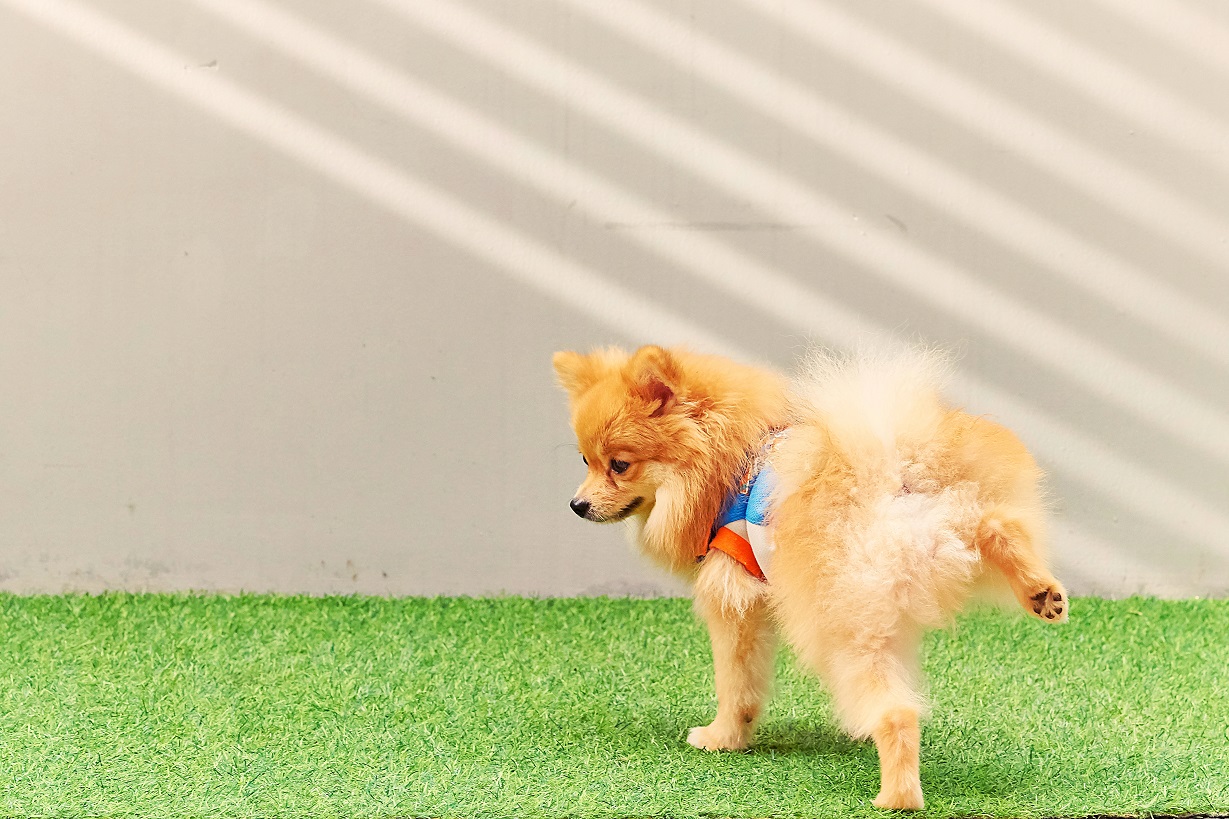
Grab the Treats
Don’t underestimate just how far a little positive reinforcement will take you.
Dogs don’t instinctively know they should pee outside rather than inside. But if you can encourage them to associate the first with something good happening, you’ll naturally decrease their desire to indulge in the second.
Each and every time you take them outside to do their business, follow them around until they go. As soon as they’ve finished, jump in with plenty of praise and a tasty treat.
Once they know they get ‘paid’ for peeing in certain places and not in others, they’ll be much less inclined to soil their crate.
Set Your Expectations
Some dogs simply can’t hold their bladders for as long as others. An excitable, tiny Chihuahua is never going to be able to last as long without a bathroom break as an adult Boxer, and neither should they be expected to.
To avoid setting either your dog or yourself up for failure, get to know just how long your puppy can hold their bladder (if it’s less than others, don’t worry – it’s not a competition) and set your expectations accordingly.
If you’re constantly pushing them past the point they can exercise control, you’re doing no one any favors.
Spy on Them
When a puppy pees in the crate because it’s been a while since their last bathroom break, it’s one thing.
However, when a puppy pees in the crate out of isolation, distress, or anxiety, it’s quite another.
Figuring out if your pup is peeing because of anxiety is tricky. After all, they’re only going to display symptoms when you’re not around.
So to get around the problem, consider setting up a camera to film their behavior while they’re in the crate.
If the recording shows them digging or clawing at the crate in an attempt to get out. Crying, barking, or whining without stop, pacing back and forth, panting, or licking themselves excessively, take it as a call to action.
Behavioral training can help anxiety enormously, but it can be tough to crack it alone. If you’re feeling lost or lack experience in training, it may be wise to consult a professional.
Get Back to Basics
Setbacks and accidents are a natural part of potty training. But if you’re starting to take more steps back than you are forward, it might be time to pause and rewind.
Again, the Potty Training Made Easy Course discussed earlier won’t do the hard work for you. You’re still going to have to invest plenty of time and energy into the process.
What it will do is show you where you might have gone wrong in the past and how you can iron out the kinks for the future.
If you’re looking for help in demystifying potty training, do yourself a favor and watch the video.
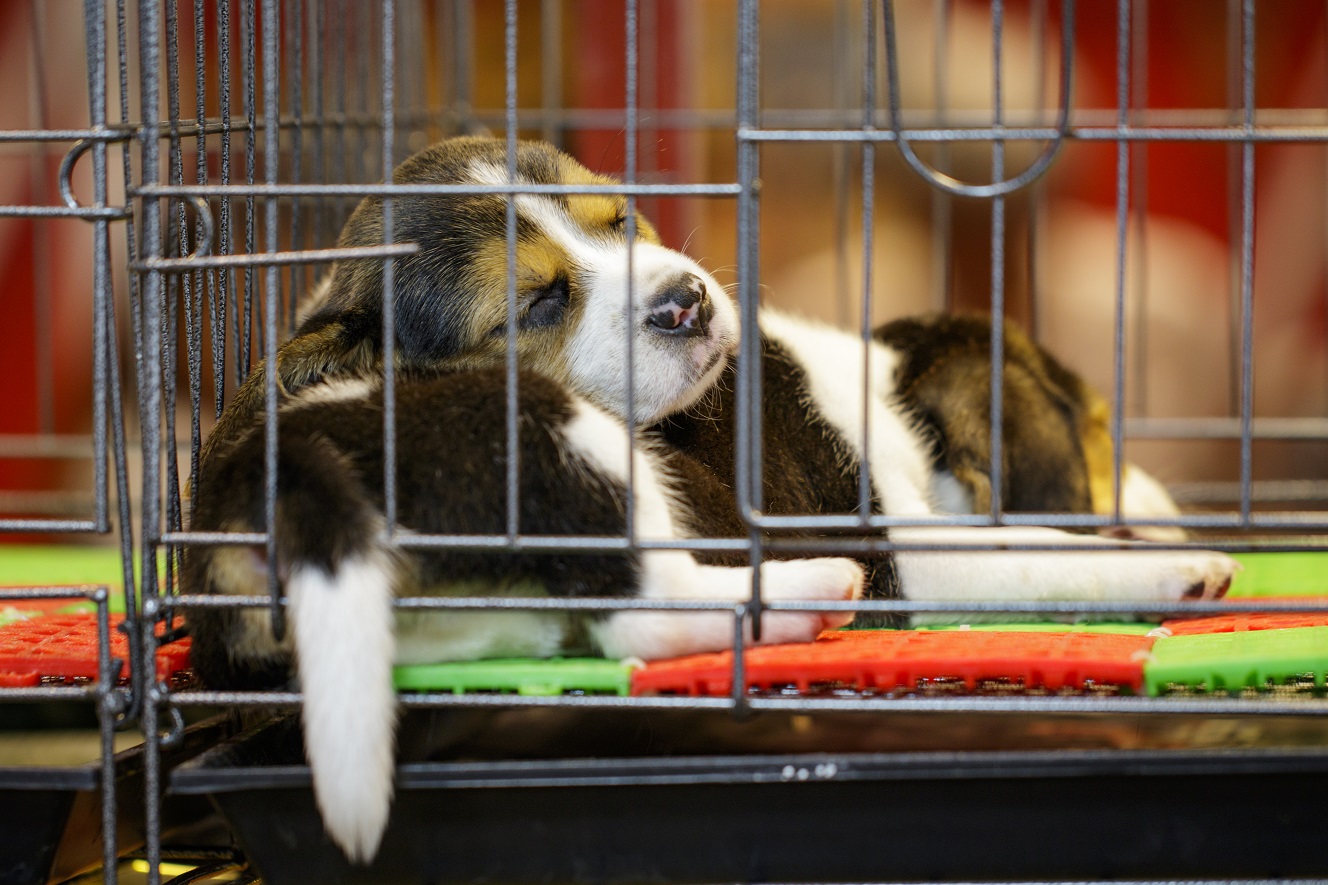
Wrapping Things Up
No one’s going to claim potty training is always a piece of cake. Neither is anyone going to say that dealing with a crate of pee every morning is the route to happiness. But persevere.
All dogs are different. Age, history, breed, and even your training methods and consistency all have a big impact on just how long the puppy training journey takes.
Some puppies will have perfect bathroom habits in a matter of days. Others can take months. With patience and consistency, almost all will reach the same destination in the end.
